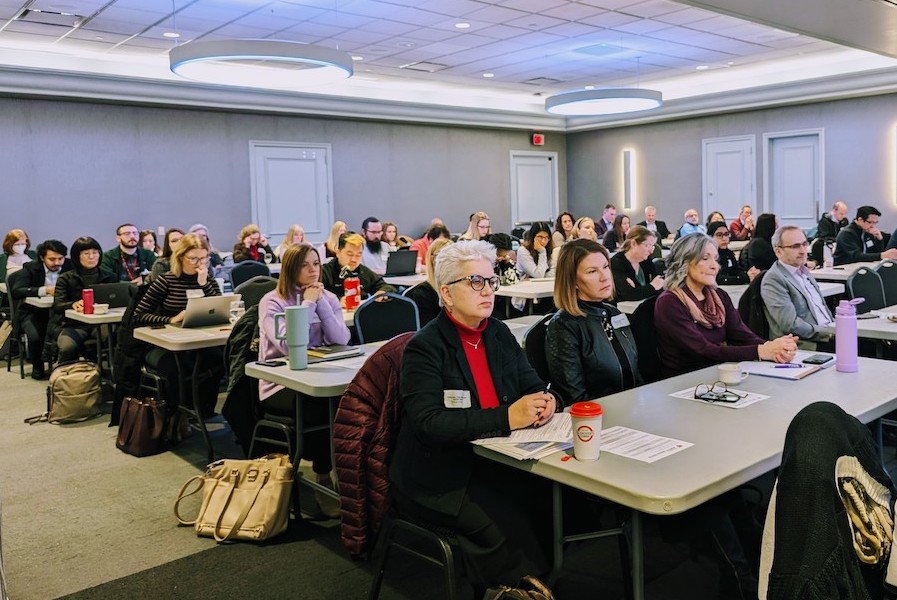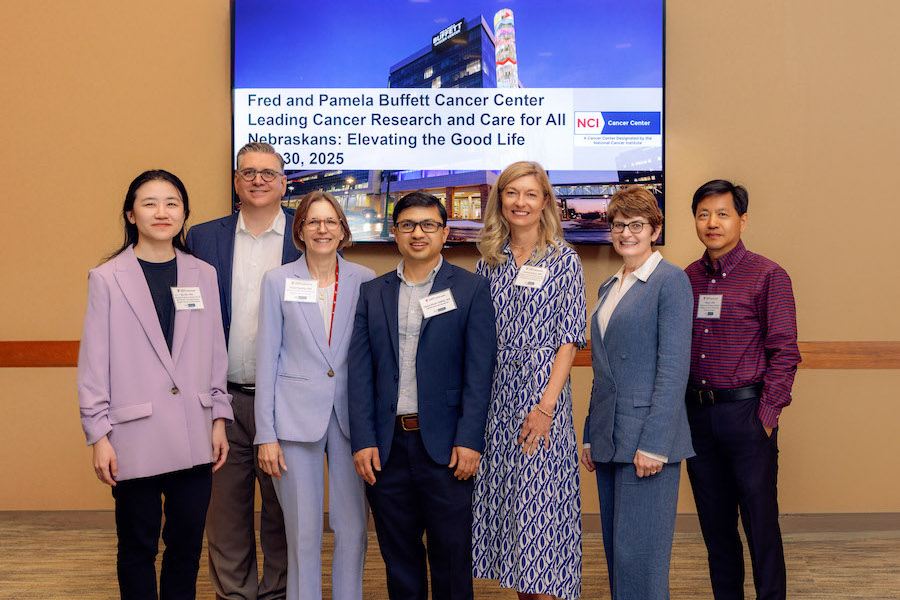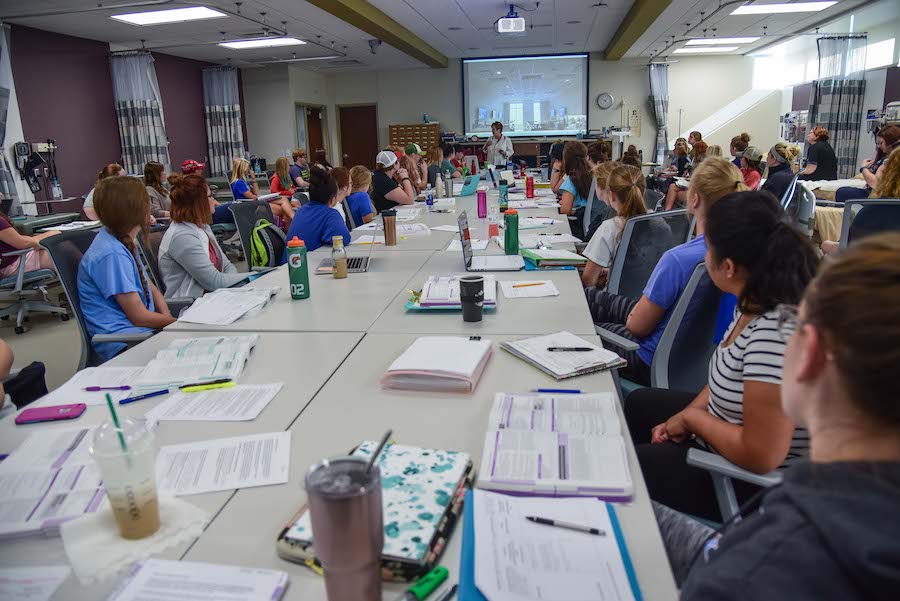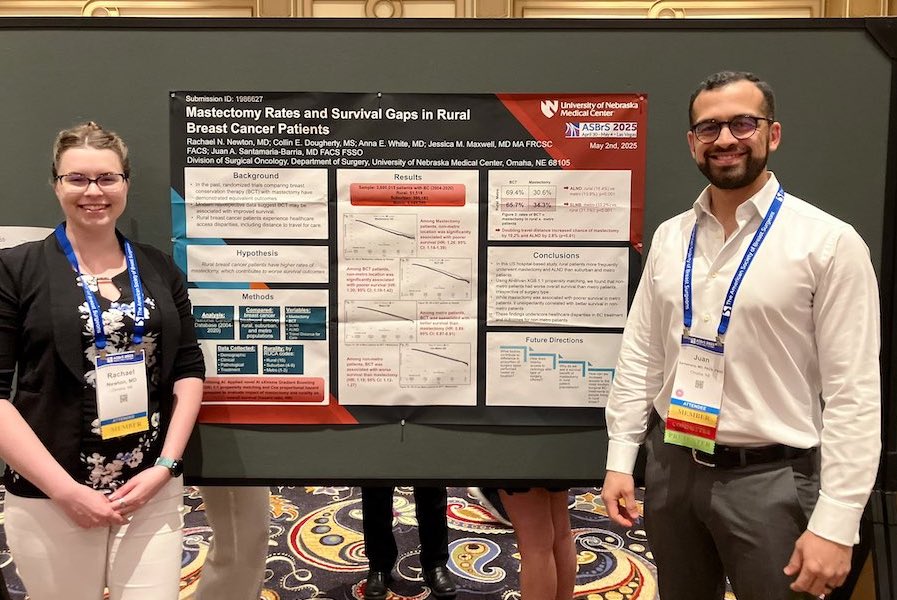
Precision Prevention and Population Health
About 40% of cancers are preventable. They often stem from environmental and lifestyle choices.
Program Overview
The Fred & Pamela Buffett Cancer Center (FPBCC) Cancer Prevention and Control (CPC) research program focuses on identifying key factors that contribute to preventable cancer risk and developing effective approaches to reduce the cancer burden and improve cancer survivorship outcomes in Nebraska and beyond.
The CPC research program brings together members with multidisciplinary expertise from 14 departments and eight colleges across the University of Nebraska System.
Aims
The Cancer Prevention and Control program spans basic, clinical, and population science. It aims to find ways to lower cancer risk and improve outcomes for patients, families, and communities in Nebraska. The program plays a vital role in advancing population health research while promoting multidisciplinary team science by strengthening both internal and external partnerships.
Aim 1: Identify and Address Cancer Risk Drivers
Investigate behavioral, environmental, and social factors that contribute to cancer development and outcomes. Current interventions are based on research that examines modifiable risk factors, including tobacco use, obesity, environmental exposures, and social determinants of health.
Aim 2: Advance Early Detection and Prevention
The program's integrated biomarker and intervention research focuses on developing biomarkers, validating novel screening methods, and implementing community-based screening programs aimed at identifying cancer at its earliest, most treatable stages, while delivering effective prevention strategies.
Aim 3: Improve Cancer Survivor Outcomes
The program’s survivorship and palliative care research focuses on symptom management, reduction of treatment-related toxicities, and long-term survivorship care. Current studies address critical issues such as frailty, cognitive impairment, fertility preservation, and exercise interventions to help survivors thrive after treatment.
Program Co-Leaders
Vijaya Raj Bhatt, MBBS, MS
Professor, UNMC Division of Oncology and Hematology. Medical Director, Leukemia Program. Section Leader, Malignant Hematology.
More about Vijaya Raj Bhatt, MBBS, MSEdward S. Peters, DMD, ScD
Tim Hawks Chair in Cancer Prevention and Population Science. Chair, UNMC Department of Epidemiology. Professor, UNMC Department of Epidemiology.
More about Edward S. Peters, DMD, ScDResearch Focus Areas
The Cancer Prevention and Control program focuses on high-impact research that addresses key factors influencing cancer risk, prevention, early detection, and survivorship. Members of the program explore a wide range of scientific questions, from biological mechanisms to community-level interventions.
Cancer Prevention and Control Member Directory
Visit the Cancer Prevention and Control Member Directory to view the full list of members.

News and Updates
 /3
/3
Obesity and Nutrition Symposium
The symposium brought together a dynamic panel of researchers and clinicians to explore the critical role of nutrition in relation to obesity, cancer risk, treatment outcomes, and survivorship. Discussions covered the epidemiological link between obesity and cancer, effective nutritional interventions, and the underlying mechanisms of obesity-related cancer risk.
 /3
/3
Cancer Prevention and Control Retreat
The inaugural Cancer Prevention and Control Retreat 2025 brought together researchers and experts for dynamic discussions on key topics, including environmental exposures, cancer screening biomarkers, survivorship, and team science. The retreat also highlighted opportunities for early-stage investigator collaboration and the use of clinical and genomic datasets in prevention research.
 /3
/3
Cancer Prevention and Control Pilot Grant
The Fred & Pamela Buffett Cancer Center announced a funding opportunity for four one-year pilot grant research proposals to support innovative projects within the Cancer Prevention and Control research program. This initiative aims to foster leading-edge research that aligns with the program's mission and promotes collaboration across disciplines.
